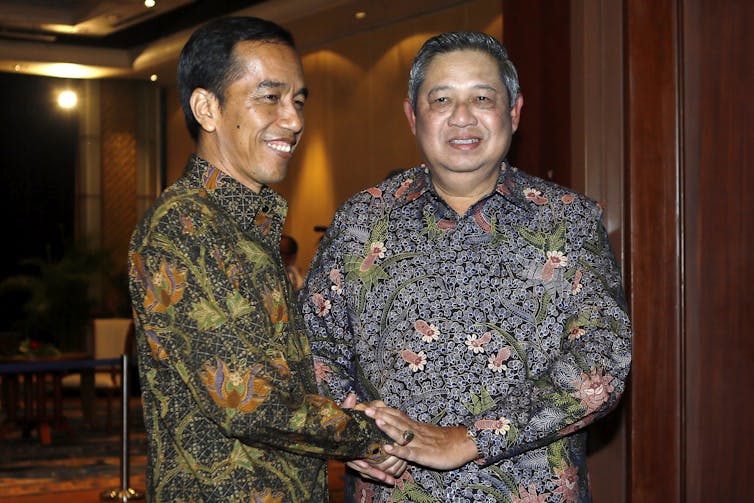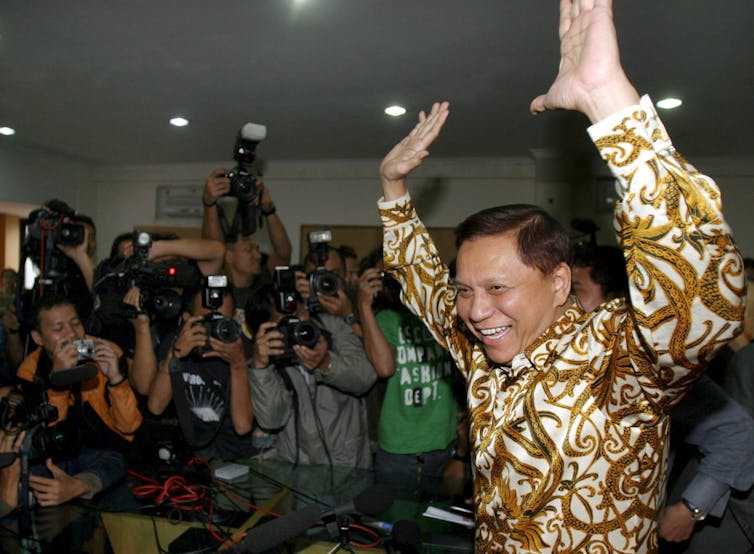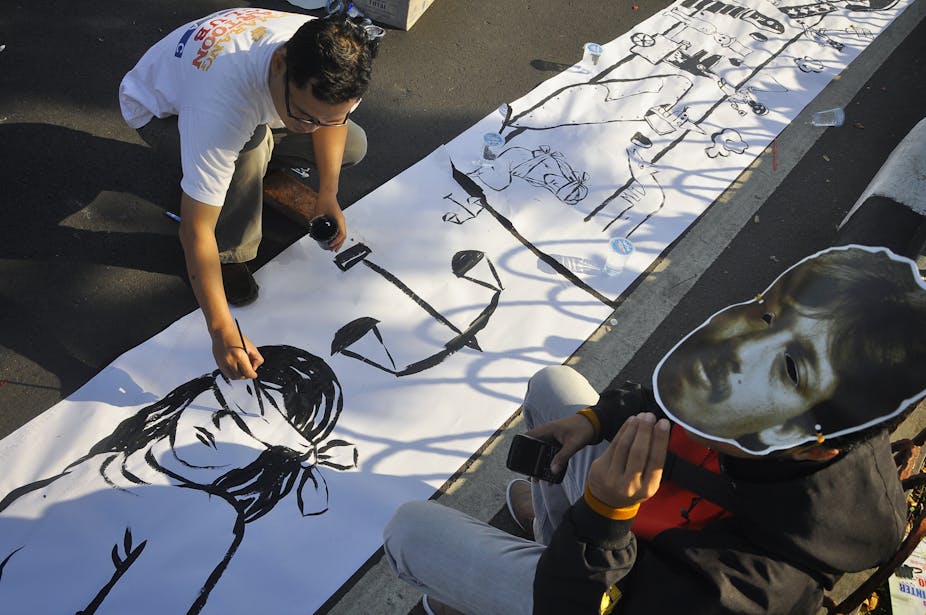A few weeks into his presidency, Indonesian President Susilo Bambang Yudhoyono uttered one of his most memorable statements. Solving the murder case of the nation’s leading human rights activist, Munir Said Thalib, was “a test of our history”, he said.
Munir was a defender of human rights who fearlessly criticised the Indonesian government and the military. He was assassinated 10 years ago on September 7.
Munir founded the Commission for “the Disappeared” People and Victims of Violence (KontraS), a human rights organisation that demanded justice for victims of state abuse. He was about to study international humanitarian law at Utrecht University. On his way to the Netherlands, he was poisoned and died on a Jakarta-Amsterdam Garuda Indonesia flight. He was 38.
A decade after Munir’s death, the alleged masterminds, former top officials of the country’s intelligence agency (BIN), still walk free. Yudhoyono will step down as president having failed to ensure Indonesia passed the test of its history.

Doubts over Jokowi’s commitment
When Joko Widodo, better known as Jokowi, assumes office in October, the test will be his to take on. Jokowi will have to carry the heavy baggage of solving the case by holding accountable all those responsible for Munir’s murder.
Already human rights activists – including Munir’s widow Suciwati – are having doubts over Jokowi’s commitment.
A.M. Hendropriyono and Muchdi Purwopranjono, former state intelligence officials allegedly involved in the planning of Munir’s killing, supported Jokowi during his presidential campaign. Jokowi recently appointed Hendropriyono, a close friend of party chairwoman and former president Megawati Sukarnoputri, as one of his advisers in the “transition team” that designs programs for his future presidency.
Hendropriyono is a former general who headed the state intelligence agency when Munir was murdered. Leaked US cables alleged that he had chaired BIN meetings discussing the planning of Munir’s murder.

Hendropriyono’s questionable human rights record dated back to the Suharto era. In 1989, he allegedly authorised a military attack on civilians in Talang Sari, Lampung. At least 27 people were killed and some 78 people are still missing. Munir represented hundreds of families of victims of the Talangsari attack. He opposed Hendropriyono’s appointment as spy chief in 2001 by the then president Megawati.
Purwopranjono was Hendropriyono’s deputy. He was proven to have contacts with Munir’s convicted murderer, Pollycarpus Budhi Priyanto.
During the investigation in 2005 by a fact-finding team appointed by the president, both BIN officials refused to cooperate. They were summoned for questioning, but refused to comply with the investigation process.
Munir is us
In November 2012, UN High Commissioner for Human Rights Navi Pillay requested the Indonesian government to re-open and re-investigate the case. As with other cases of human rights abuses in Indonesia, the government ignored it.
It is important for Jokowi to solve the case. He had promised during his presidential campaign to resolve past human rights abuses. In his 41-page vision and mission statement submitted to the national election commission (KPU), Munir’s case was mentioned as one of the most important to be settled.
One of Jokowi’s most popular slogans during his campaign was: Jokowi is us. It conveys a message that he represents ordinary Indonesian citizens with his down-to-earth style of governing.
Munir is also us. He represents those who were marginalised during Suharto’s regime and who have longed for justice. He fought for victims to speak and be heard.
Both Jokowi and Munir bring out similar expectations from many ordinary and marginalised Indonesians: politics that takes the side of the people. Jokowi, a former furniture seller who grew up in a slum, has become a symbol of new hope in Indonesia’s politics. Not having any connections with the old regime, he is the result of Indonesia’s democratisation process, which started with the fall of Suharto in 1998.
Munir, on the other hand, is a symbol of the struggle for justice. Jokowi partly owes the changes that made it possible for him to win the presidency to Munir. Munir demanded accountability at a time when the state controlled its people.
Accountability is one of the basic principles of democracy, but it is still being established in the country. It is also one of the parameters for a break from an authoritarian regime to a more democratic one. Exactly for this reason, impunity has to end.
Impunity allows elements of the old regime to consolidate and keep their influence in the new democracy. The face of today’s democracy will not change much from what was in place before 1998 without accountability and the rule of law. Indonesia’s biggest test is to challenge impunity and break with the old repressive regime.
Challenges for Jokowi
The biggest challenge for Jokowi in implementing his campaign promises would be his own political party, the Indonesia Democratic Party of Struggle. The party is rooted in a nationalist platform and at times human rights accountability does not seem to fit with it.
When Megawati became president in 2001, after the parliament impeached the progressive Abdurrahman Wahid as president, protection of human rights started to deteriorate. Munir’s death took place under Megawati’s leadership. Human rights protection later stalled during SBY’s leadership.
Ending impunity is indeed the test for Indonesia, and solving the case of Munir’s murder is definitely a test for Jokowi.

